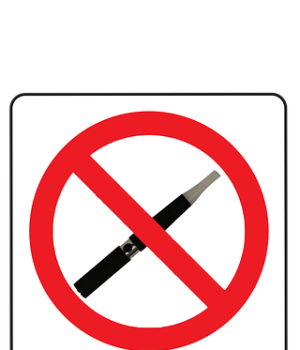
Kazakhstan has just banned the import, production, and sales of vaping products, following a measure signed by President Kassym-Joomart Tokayev. The regulation applies to devices, e-liquids (in cartridges, reservoirs, and other containers) with or without nicotine, as as well as chemicals and flavourings manufactured to produce inhalable aerosols. The new bill also bans advertising for heated tobacco products, vapes, and e-liquids.
Anyone caught selling the banned products could face a fine of up to $1,600 or up to 50 days of arrest. While the penalty for importing or manufacturing electronic cigarettes will include a fine of up to $16,500, a two-year restriction of liberty order, or imprisonment for up to two years. The law is set to take effect 60 days after its official publication.
More Asian countries going for prohibition
Another Asian country, Nepal, is on the verge of banning vapes due to a surge in use among young people. A recent survey by the Nepal Development Research Institute (NDRI) reported that 34.1% of the population used tobacco in various forms, up from 31.8% in 2020, with imports reaching 3.2 million units in 2023, amounting to an NPR210 million ($1.5 billion) industry.
Among individuals aged 15 to 24, 18% use tobacco, with 8.9% preferring smoking and 6.3% opting for smokeless tobacco. Among individuals aged between 25 and 39, the rate of tobacco use is of 26.5%, while the rates in those aged 40 to 54 and 55 to 69, the rates are of 41.6% and 56.7%, respectively.
Notably, 55.8% of men and 11.2% of women in Nepal use some form of tobacco. Researchers attribute the rise in tobacco consumption to the growing popularity of hookah and vapes, and are advocating for increased taxes on tobacco products. NDRI head Jaya Kumar Gurung has openly criticized the lax enforcement of the Anti-Smoking Act and emphasizes the need for greater public awareness of the adverse effects of tobacco use.
Meanwhile, Senior Health Education Administrator Bhakta Bahadur KC claims that vapes pose similar health risks as traditional cigarettes, despite the fact that science has consistently indicated otherwise. In fact, another recent study has reiterated that vapes may play a significant role in helping people quit smoking tobacco. Contrary to some studies suggesting that most vapers continued to smoke traditional cigarettes, the current one indicated a shift in behaviour.
Science keeps indicating the effectivity of vapes for smoking cessation
Titled, “Divergence in Cigarette Discontinuation Rates by Use of Electronic Nicotine Delivery Systems (ENDS): Longitudinal Findings From the United States PATH Study Waves,” the paper revealed that between 2013 and 2016, the percentage of people who quit smoking was similar among vapers and traditional smokers. However, from 2016 to 2019, a higher percentage of vapers quit smoking compared to non-vapers. The trend continued through 2021, with nearly 31% of e-cigarette users quitting smoking compared to 20% of non-users.
This study aligns with earlier research published in the New England Journal of Medicine, which found that smokers provided with free e-cigarettes and counselling, were more likely to remain tobacco-free after six months, compared to those who received standard counselling alone.
Researchers believe that the fact that vaping mimics the action of smoking makes vapes the easiest nicotine products to transition to for individuals addicted to smoking. However, experts caution against viewing vaping as a universal solution. While quitting nicotine entirely is the healthiest option, some doctors argue that replacing one form of nicotine with another may not address the root issue of addiction.












